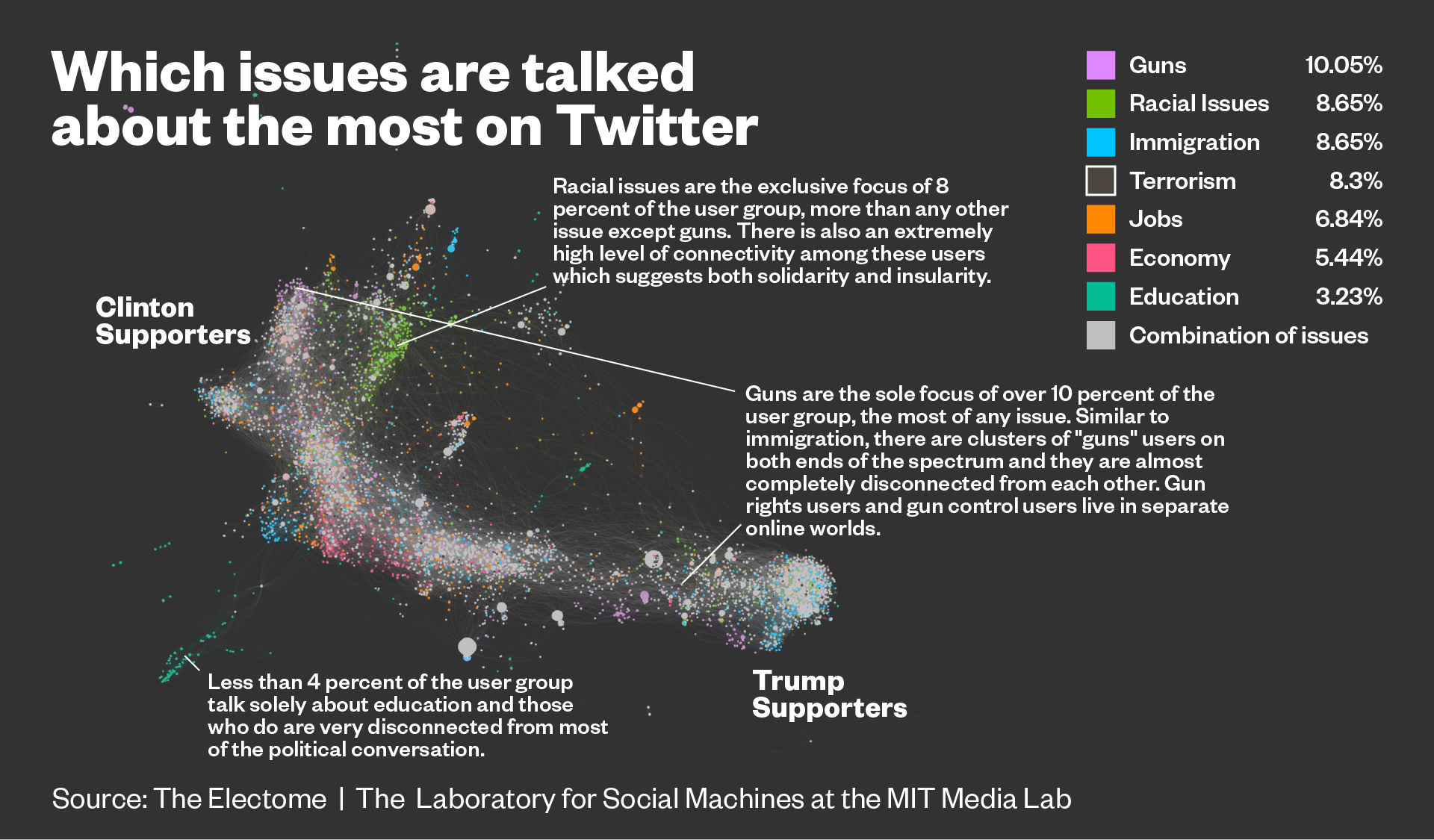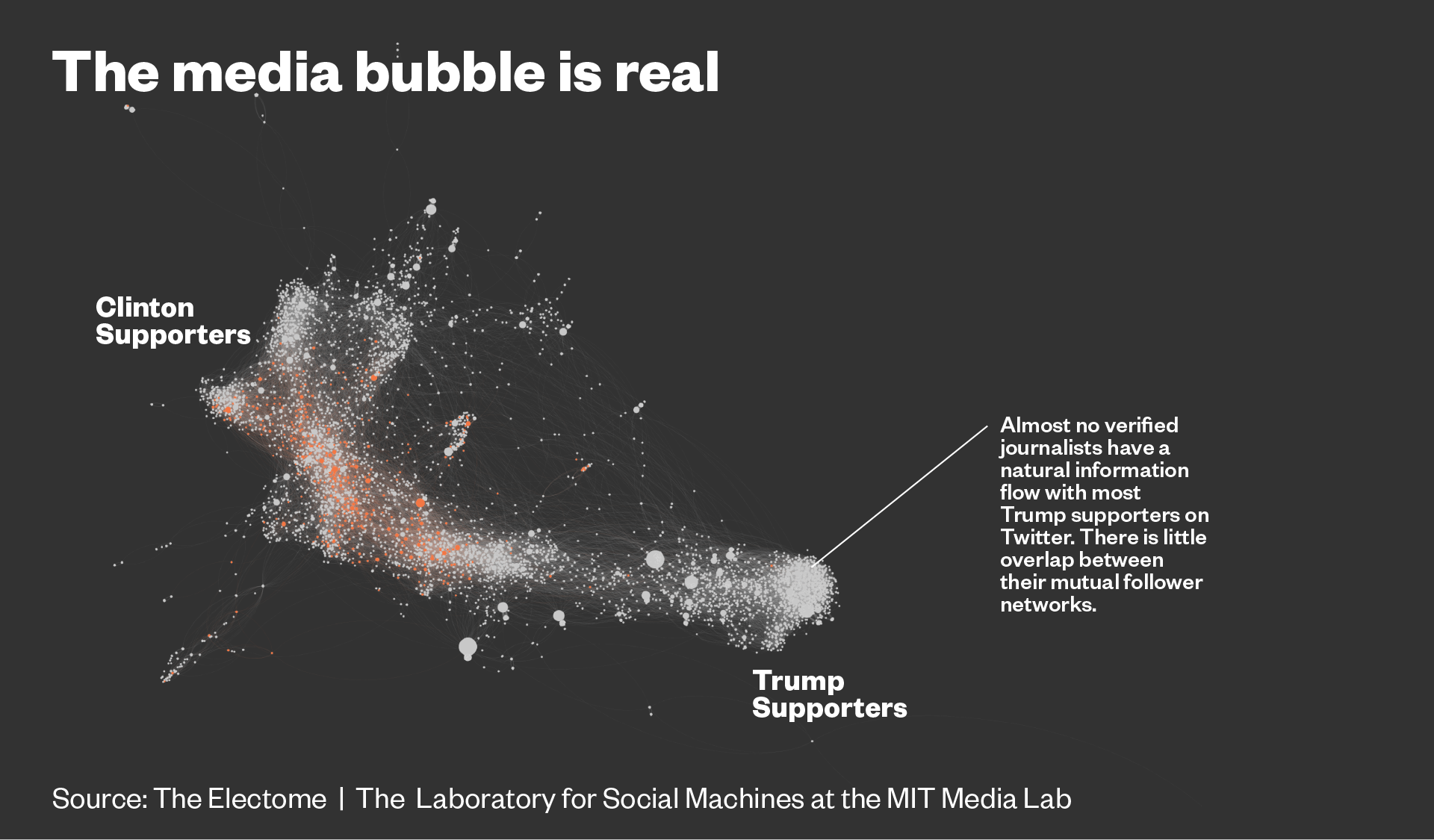The researchers found that Trump supporters (just follow Trump) associated very little with Clinton supporters (just follow Clinton) or those who follow both Clinton and Trump. They found that following only one candidate predicted actual political support very well.
On issues like gun control, those who actively discuss the issue tend to fall solidly into either Clinton or Trump's camp and don't interact much. This is pretty scary to me considering that we always hear about how social media and the internet can help expose people to other viewpoints. I see this research as a strong indication that there is a tendency (at least at the political extremes) to reinforce existing beliefs, not facilitate meaningful dialogue.

As for fake news, the picture is even more disturbing. The researchers found that almost no verified journalists on Twitter reached Trump supporters. If we take the view that journalists are generally trustworthy, I find it scary to think that social media (or Twitter at least) seems to be utterly failing at creating a universal set of facts. Quite literally, Twitter seems to be allowing people to live in different worlds.

My takeaway of this is that people use social media as a form of entertainment primarily, NOT to inform themselves. Entertainment is supposed to feel good, and confronting cognitive dissonance/different opinions is rarely comfortable, let alone good feeling. Before the internet, the nightly news was how people learned about issues (a fairly consistent set of facts). Discussions took place in real life, where it's difficult to dismiss someone as "bad" because their humanity is clear. In person conversations require that both parties at least give the impression that they are considering the others viewpoint. The same is clearly not true online. The end result seems to be a technologically enhanced ideological polarization (which I would guess plays out like a negative feedback loop). Yikes.
No comments:
Post a Comment